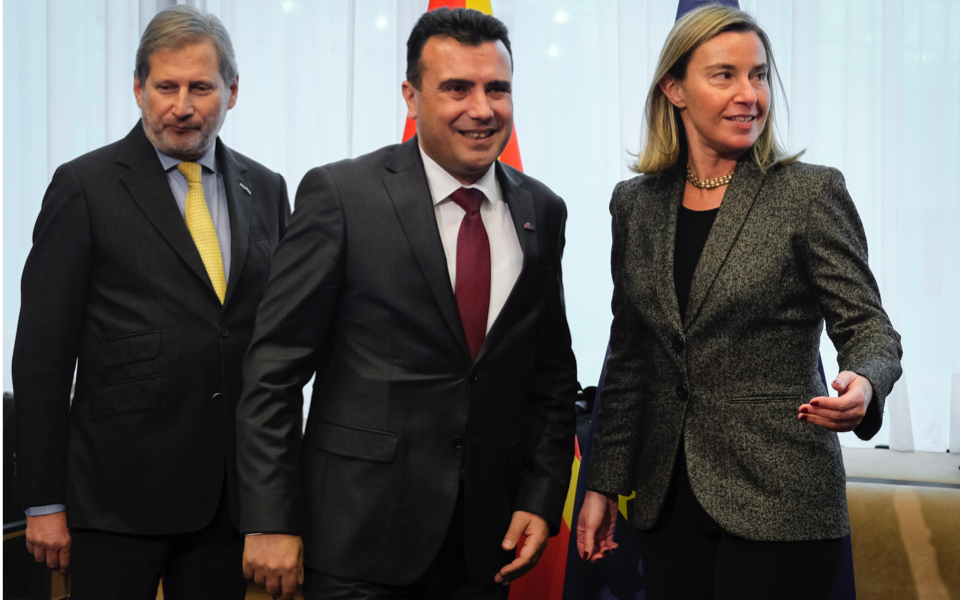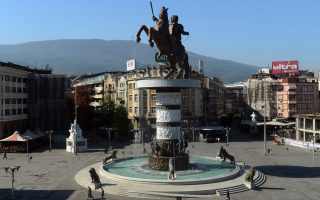The Prespes agreement: A critical (re)evaluation

On June 17, Greece and the Former Yugoslav Republic of Macedonia signed an agreement in Psarades, a tiny village in the Prespes lake district, with which they aimed to resolve the name dispute between the two neighboring countries that goes back to the early 1990s. The Prespes agreement was almost unanimously hailed by the international community as a historic and positive step in the direction of securing peace and stability in the Balkans. The satisfaction was even greater among NATO and European Union members, as they perceived the agreement as a means of securing the pro-Western orientation of Skopje and minimizing Russian influence in FYROM.
According the agreement, the two signatories mutually accepted that the official name of FYROM will be the “Republic of North Macedonia” (“North Macedonia” for short). The new name will be reflected in the country’s constitution (which will be amended for this purpose) and will be used by all and for all purposes. This is indeed a fair compromise. It makes a clear geographical distinction between Greece’s northern neighbor and the Greek region of Macedonia. It would be totally unrealistic for the Greeks to expect that they could reach an agreement without accepting the use of the word “Macedonia” in the name of their neighboring country. By remaining intransigent on this issue, Athens would effectively decline any sort of negotiation, thus leaving the problem unsolved. All well-intentioned commentators on the agreement (and I include myself in this category) concur more or less on this, adding that it is in Greece’s interests to establish cordial relations with “North Macedonia,” whose existence is beneficial for Greece.
However, from the Greek point of view, this is practically the only positive aspect of the agreement. Among its many clauses, there are two which are the most troublesome. The first is related to the nationality of the citizens of “North Macedonia.” According to the agreement, this nationality will be registered in all travel documents as “Macedonian/citizen of the Republic of North Macedonia.” It is absolutely paradoxical that the nationality does not reflect directly the country’s name: To give just one similar example, the citizens of South Africa are called South Africans, not Africans, when referring to their nationality. It is true that nationality is different from ethnicity/nationhood: The first refers to the legal connection between a citizen and the country of their origin, whereas the second refers to the national consciousness of a person. But precisely for this obvious reason one would expect the use of the term “North Macedonian” when referring to the nationality. In reality, in the context of the agreement, nationality seems to be just a euphemism for ethnicity.
This assumption is further strengthened by the provisions of the agreement concerning the official language of “North Macedonia” – and this is the second problematic point of the Prespes agreement. According to Article 1(3c), this language is described as “Macedonian.” It is true that the agreement underlines that this language is within the group of South Slavic languages and, thus, is not related to ancient Greek history and civilization. However, this distinction does not change the fact that, no matter what the Greek government is saying, for the rest of the world, people with “Macedonian nationality” who speak the “Macedonian language” will be automatically considered as ethnic “Macedonians.” This is implied in the text of the agreement itself, Article 7(3) of which states that, in relation to “North Macedonia,” the term “Macedonian” denotes the “language, people and their attributes, with their own history, culture and heritage”: It is difficult to think of a more precise description of nationhood. Repeated public statements made by FYROM Prime Minister Zoran Zaev confirm the assumption that, after all, this was the main aim of the government in Skopje: to give part of the name, in order to gain the – direct or indirect – recognition of the existence of a Macedonian nation by Greece.
Negotiation is the art of making compromises. You cannot expect that any compromise will satisfy one’s desires 100 percent. But in the case of the Prespes agreement, the Greek side has given much more than was necessary in order to reach a compromise. It is possible that some of the stipulations of the agreement will create new problems in the not so distant future.
All the signs point to the conclusion that the agreement will be approved by the people of FYROM in Sunday’s referendum and that within the next few months the government in Skopje will make sure that the Parliament ratifies the agreement and makes the necessary constitutional amendments. By doing so, it will have fulfilled all its obligations according to the agreement. It will then be Athens’s turn to fulfill its obligations. And this is when the real problems might begin for Greece.
Antonis Klapsis is assistant professor at Neapolis University in Paphos, Cyprus.





